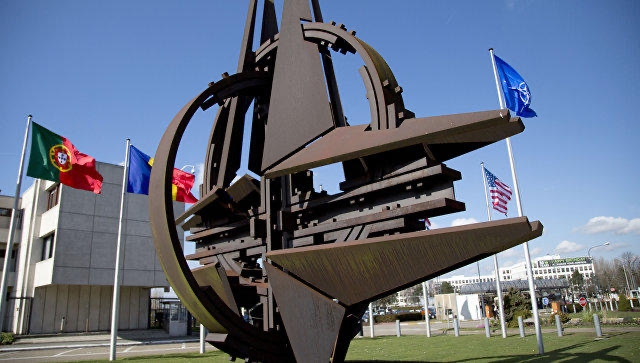NATO Concerned over Military Hostilities in Nagorno-Karabakh Conflict Zone
James Appathurai, NATO's Secretary General’s Special Representative for the Caucasus and Central Asia, made a statement in relation to the escalation of the Nagorno Karabakh conflict.
"NATO is deeply concerned by reports of large scale military hostilities along the line of contact in the Nagorno-Karabach conflict zone. The sides should immediately cease hostilities, which have already caused civilian casualties. There is no military solution to this conflict. The parties should resume negotiations towards a peaceful resolution. NATO supports the efforts of the OSCE Minsk Group," stated NATO.
Earlier today, the situation in the Nagorno-Karabakh conflict zone became tense. Martial law and general mobilization was declared in the Republic of Armenia.
Armenia and Azerbaijan blame each other for escalating the situation and opening fire. There are reports of casualties on both sides.
The conflict between the two South Caucasus countries began in 1988 when Armenia made territorial claims against Azerbaijan.
The disputed region of Nagorno-Karabakh and seven surrounding districts are de facto controlled by the self-declared Republic of Artsakh, but are internationally recognized as de jure part of Azerbaijan.
The conflict has its origins in the early 20th century. Under the Soviet Union, Joseph Stalin decided to make the Nagorno-Karabakh region an autonomous oblast of Soviet Azerbaijan.
The present conflict began in 1988 when the Karabakh Armenians demanded that Karabakh be transferred from Soviet Azerbaijan to Soviet Armenia. The conflict escalated into a full-scale war in the early 1990s.
The modern phase of the conflict began in February 1988, when, during the dissolution of the Soviet Union in 1989, ethnic tensions between Armenians and Azerbaijanis increased in the Nagorno-Karabakh region.
A ceasefire signed in 1994 provided for two decades of relative stability, which significantly deteriorated along with Azerbaijan's increasing frustration with the status quo, at odds with Armenia's efforts to cement it. A four-day escalation in April 2016 became the deadliest ceasefire violation to date.
By Ana Dumbadze












